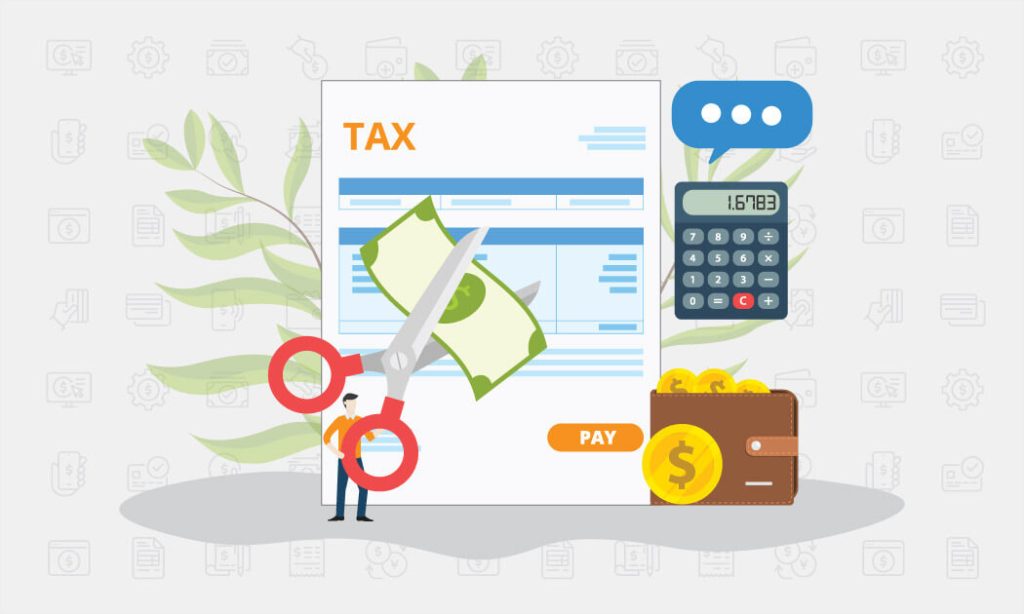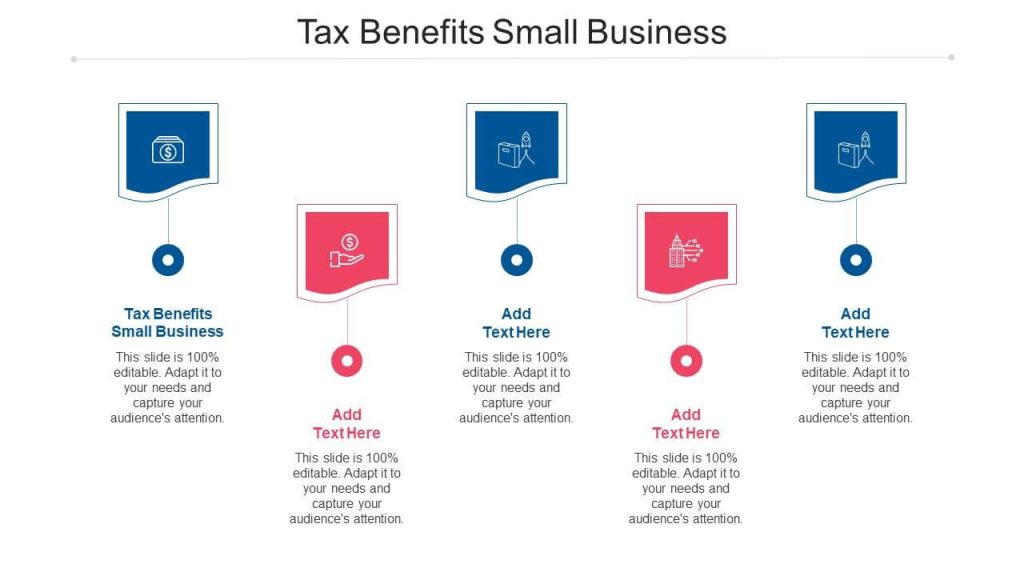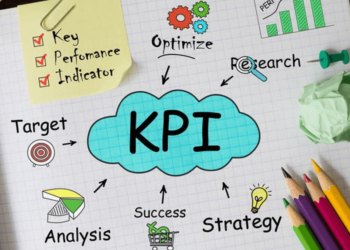Taxes are an integral part of any business model, be it small or large. For small businesses, a clear understanding of the various types of taxes and tax benefits can help them optimize their financial capabilities and adhere to tax regulations effectively. This article will introduce and analyze the significant types of taxes that small businesses need to be aware of and the tax benefits they can leverage to reduce the tax burden.

I- Common Types of Taxes for Small Businesses
Taxes are an inherent aspect of any economic system, and small businesses are no exception. Understanding the various types of taxes that small businesses may encounter is essential for financial planning, compliance, and the overall sustainability of the business. This section will provide an in-depth analysis of the common types of taxes that small businesses must navigate.
[quads id=1]
1. Corporate Income Tax:
Corporate Income Tax is a direct tax imposed on the net profits of corporations or businesses. It is one of the primary sources of revenue for governments worldwide. Small businesses that are structured as corporations are subject to corporate income tax. The tax rate varies depending on the jurisdiction and the company’s level of income. To reduce their corporate income tax liability, small businesses can consider legal strategies, such as taking advantage of tax credits, deductions, and incentives available to them. Choosing an appropriate corporate structure or legal entity can also impact the amount of corporate income tax owed. Many small businesses opt for structures like Limited Liability Companies (LLCs) or S Corporations, which often offer tax advantages compared to traditional C Corporations.
2. Personal Income Tax:
Personal Income Tax is a direct tax levied on an individual’s or household’s income. Small business owners who operate as sole proprietors, partners in a partnership, or as shareholders in an S Corporation report their business income on their personal tax returns. This income is subject to personal income tax. To minimize the personal income tax burden, business owners can utilize tax deductions and credits available to them. These deductions may include business expenses, depreciation, and retirement plan contributions. Effective tax planning and record-keeping are crucial to ensure accurate reporting and to take full advantage of the available tax benefits.
3. Value Added Tax (VAT):
Value Added Tax, commonly known as VAT, is an indirect tax levied on the value added at each stage of the production and distribution of goods and services. Small businesses are often required to collect VAT from their customers and then remit it to the government. VAT rates and regulations can vary significantly from one country to another. Some small businesses may qualify for simplified or reduced VAT schemes designed to ease the administrative burden. VAT credits may be available to offset the VAT paid on business-related expenses.
4. Excise Tax:
Excise Tax is a special tax applied to specific goods or services, such as alcohol, tobacco, fuel, and luxury items. Small businesses involved in the production or sale of excisable products must adhere to excise tax regulations. Compliance typically involves keeping detailed records, calculating tax liability accurately, and timely payment to the relevant authorities. In some cases, small businesses may be eligible for excise tax refunds, exemptions, or credits, particularly if they are engaged in the manufacture or sale of products with special regulations.
5. Customs Duties:
Customs Duties, also known as import duties, are tariffs levied on goods imported into a country. Small businesses engaged in international trade, importing or exporting products, are directly affected by customs duties. Customs duties can significantly impact the cost of goods, and it’s crucial for small businesses to understand and comply with customs regulations. Utilizing trade agreements, preferential trade programs, or applying for duty drawback programs can help reduce the financial burden of customs duties.
6. Property Tax:
Property Tax is a local tax imposed on real estate and tangible personal property. Small businesses that own real estate, land, buildings, or equipment may be subject to property tax. The amount of property tax is typically based on the assessed value of the property and the tax rates determined by local authorities. Small business owners can take advantage of property tax deductions, exemptions, or abatements in some regions. It’s essential to maintain accurate records and keep updated on local property tax regulations.
7. Fuel Tax:
Fuel Tax is a specific excise tax applied to motor fuels, including gasoline and diesel. Small businesses with a fleet of vehicles often face fuel tax obligations. They are required to calculate the tax liability accurately, report it to the relevant authorities, and make timely payments. Small businesses operating in industries that rely heavily on fuel consumption, such as transportation and logistics, may qualify for fuel tax refunds or credits. These refunds can help offset the fuel tax paid on business-related activities.

Understanding and navigating these common types of taxes is a fundamental aspect of small business operations. Each tax has its unique implications, regulations, and potential deductions or credits that can significantly impact a small business’s financial well-being. Complying with tax laws, leveraging available tax benefits, and engaging in effective tax planning are vital elements for the long-term success and sustainability of small businesses. Small business owners are encouraged to seek professional tax advice to ensure they are optimizing their tax positions and minimizing their tax liabilities within the bounds of the law.
II- Tax Benefits for Small Businesses
Tax benefits for small businesses play a pivotal role in the financial management and sustainability of these enterprises. These incentives and deductions are designed to promote business growth, enhance competitiveness, and reduce the tax burden on entrepreneurs. In this section, we will delve into the world of tax benefits available to small businesses, explore the various incentives, and provide insights into how small business owners can make the most of these opportunities.
1. Tax Deductions:
Tax deductions are expenses that reduce the taxable income of a small business. They offer a direct reduction in the amount of income subject to taxation. Small businesses can claim a wide range of deductions, including business expenses, such as office rent, utilities, and wages, as well as costs related to acquiring, maintaining, or improving business assets. By taking full advantage of tax deductions, small businesses can lower their overall tax liability. Common deductions for small businesses include depreciation deductions for business assets, home office expenses, and vehicle expenses. Business owners should keep meticulous records of expenses to support their claims for deductions.
2. Low Tax Structure:
Selecting the appropriate tax structure is an essential consideration for small businesses. Different organizational structures, such as sole proprietorships, partnerships, limited liability companies (LLCs), and corporations, have varying tax implications. Many small businesses opt for tax structures that offer lower corporate income tax rates or preferential tax treatment. For instance, S Corporations and LLCs are known for their pass-through tax treatment, where business income is reported on the owner’s personal income tax return. This can potentially lead to lower overall tax liability compared to traditional C Corporations. Choosing the right tax structure is a strategic decision that can have a significant impact on a small business’s tax burden.
3. Capital Investment Tax Credits:
Capital investment tax credits encourage small businesses to invest in specific industries or eligible expenses. These credits provide a direct reduction in the amount of tax owed. Small businesses that invest in new equipment, technology, or renewable energy sources may qualify for these credits. They can either reduce their tax liability or receive a refund for a portion of their qualified expenses. Capital investment tax credits aim to stimulate economic growth by incentivizing businesses to modernize their operations and adopt sustainable practices. These incentives can be a valuable resource for small businesses looking to expand or innovate.
4. Property Tax Exemptions:
Property tax exemptions are available in some regions to alleviate the property tax burden on small businesses. The exemptions may apply to specific types of property, such as machinery and equipment used in manufacturing, or to small business-owned real estate. Property tax abatements can help small businesses reduce operating costs and allocate funds to other critical areas of their operations. To benefit from property tax exemptions, small business owners should inquire about local regulations and apply for relevant exemptions or abatements based on their business activities and the type of property they own.
5. Renewable Energy Tax Credits:
Small businesses that invest in renewable energy sources, such as solar panels or wind turbines, may qualify for renewable energy tax credits. These credits are designed to promote environmental sustainability and energy efficiency. Small businesses can receive a tax credit that offsets a portion of the costs associated with installing and maintaining renewable energy systems. These credits are not only environmentally responsible but also financially advantageous, as they can reduce energy costs and generate additional revenue through net metering and the sale of excess energy back to the grid.
6. Job Creation Tax Credits:
Job creation tax credits are incentives provided by certain regions or countries to encourage businesses to create new job opportunities. Small businesses that hire new employees may qualify for tax credits or other benefits that reduce their tax liabilities. These credits can take various forms, such as a percentage of the wages paid to new employees or a reduction in the employer’s share of payroll taxes. By participating in job creation programs, small businesses can help stimulate the local economy while benefiting from tax incentives that make hiring and retaining employees more cost-effective.
Effectively Leveraging Tax Benefits:
To make the most of tax benefits for small businesses, owners and entrepreneurs should consider several key strategies:
1. Knowledge and Compliance: Stay informed about tax laws, regulations, and changes at the local, state, and federal levels. Ensure strict compliance to avoid potential penalties or issues with tax authorities.
2. Tax Planning: Develop a comprehensive tax strategy that aligns with the business’s financial goals. Review the business’s financial structure, assess potential deductions, and evaluate the tax implications of various decisions.
3. Record Keeping: Maintain meticulous records of all expenses, income, and financial transactions. Proper record keeping is essential to support deductions and credits, as well as to demonstrate compliance in the event of an audit.
4. Professional Guidance: Consult with tax professionals, accountants, or financial advisors who specialize in small business taxation. These experts can provide invaluable insights and help you navigate the complex tax landscape.
5. Local Incentives: Investigate regional and municipal tax incentives that may be available to small businesses. Some local governments offer property tax abatements, grants, or low-interest loans to support business growth.
6. Sustainability Initiatives: Consider adopting sustainable practices, such as renewable energy sources, not only for environmental benefits but also for financial advantages in the form of tax credits and reduced operational costs.
Tax benefits are a vital aspect of the financial landscape for small businesses. These incentives and deductions offer opportunities to reduce tax liabilities, stimulate growth, and enhance the overall competitiveness of these enterprises. Small business owners should be proactive in exploring and utilizing the available tax benefits. By leveraging tax deductions, choosing the right tax structure, capitalizing on investment tax credits, taking advantage of property tax exemptions, and adopting sustainability initiatives, small businesses can optimize their financial positions while adhering to tax laws and regulations. Professional guidance and strategic tax planning are essential elements of a successful approach to benefiting from the various tax incentives designed to support small business growth and economic development.

III- How to Utilize Tax Benefits
Leveraging tax benefits effectively is a crucial aspect of financial management for small businesses. These incentives and deductions can significantly impact a business’s bottom line, making it essential for entrepreneurs to understand the mechanisms of maximizing these advantages. In this section, we will explore the strategies and best practices for small business owners to make the most of tax benefits available to them.
1. Understand Tax Regulations:
A fundamental step in optimizing tax benefits is to have a thorough understanding of tax regulations relevant to your jurisdiction and industry. Tax laws and regulations can be intricate and vary from one region to another, making it vital to stay informed. This includes being aware of changes in tax laws and staying up to date with amendments, as tax regulations are subject to periodic revisions. Ensuring compliance with tax regulations is not only necessary to avoid potential penalties but also to gain access to the available benefits.
2. Consult Tax Experts:
Professional guidance is invaluable when navigating the complex world of taxes. Small business owners should consider seeking assistance from tax experts, certified public accountants (CPAs), or financial advisors who specialize in small business taxation. These experts can provide insights into tax planning, recommend tax strategies that align with the business’s goals, and help identify specific tax benefits that the business can leverage. Their expertise can ensure that you take full advantage of the incentives available while avoiding pitfalls or oversights.
3. Stay Updated on Tax Changes:
Tax laws are subject to change, and staying informed about these changes is crucial for effective tax planning. Government agencies regularly modify tax codes, which can result in new incentives or the expiration of existing ones. Therefore, small business owners should keep abreast of any alterations in tax regulations. This may involve subscribing to updates from government agencies, engaging with industry associations, or working closely with tax professionals who can keep you informed about tax changes that could impact your business.
4. Tax Planning:
Tax planning is a proactive approach to managing your tax liabilities and optimizing tax benefits. It involves assessing your business’s financial structure, revenue streams, and expenses to identify potential deductions, credits, and incentives. Effective tax planning aims to align the business’s financial goals with tax optimization. Business owners can develop a tax plan tailored to their specific circumstances and financial objectives. This plan may involve timing income and expenses strategically, structuring the business in a way that minimizes taxes, and utilizing tax-efficient investment strategies.
5. Use Financial Tools:
Technology and financial tools can greatly simplify the process of managing taxes. Various software applications and platforms are available to help small business owners track expenses, income, and tax liabilities. These tools can generate financial reports, calculate tax deductions, and assist in filing tax returns. Utilizing accounting software can streamline financial management, reduce the margin for error, and ensure that you are taking advantage of all available tax benefits. Additionally, some software solutions offer compliance checks and updates on tax law changes.
6. Seek Local Incentives:
Many regions offer local tax incentives and programs designed to support small businesses. These incentives can take the form of property tax abatements, grants, or low-interest loans. Small business owners should be proactive in exploring these local programs and applying for incentives for which they qualify. Engaging with local chambers of commerce, business development organizations, and economic development agencies can provide access to information about these incentives and how to apply for them.
7. Sustainability Initiatives:
As sustainability becomes increasingly important, small businesses can benefit from embracing environmentally friendly practices. By investing in renewable energy sources, such as solar panels or energy-efficient technologies, businesses can reduce energy costs and take advantage of renewable energy tax credits. These credits not only align with responsible environmental practices but also offer financial advantages. The combination of reduced operating costs and potential government incentives can enhance the bottom line while contributing to sustainable business operations.

Effectively utilizing tax benefits is essential for small businesses to optimize their financial positions, reduce tax liabilities, and ensure long-term success. Understanding tax regulations, seeking professional guidance, staying informed about tax changes, developing a comprehensive tax plan, using financial tools, exploring local incentives, and adopting sustainability initiatives are vital components of a successful strategy for benefiting from available tax incentives. By following these best practices, small business owners can maximize their access to tax benefits while maintaining compliance with tax laws and regulations. This approach not only enhances the financial well-being of the business but also contributes to the overall sustainability and growth of the enterprise.
Conclusion:
Types of taxes and tax benefits play a crucial role in the operations of small businesses. Understanding the various tax types, tax regulations, and how to leverage tax benefits can help small businesses optimize their finances, reduce tax burdens, and maintain compliance. Utilizing tax benefits demands knowledge and specific planning but can bring substantial advantages, fostering business growth and prosperity in an increasingly competitive business environment.
Source: Admin compiled from the Internet


















